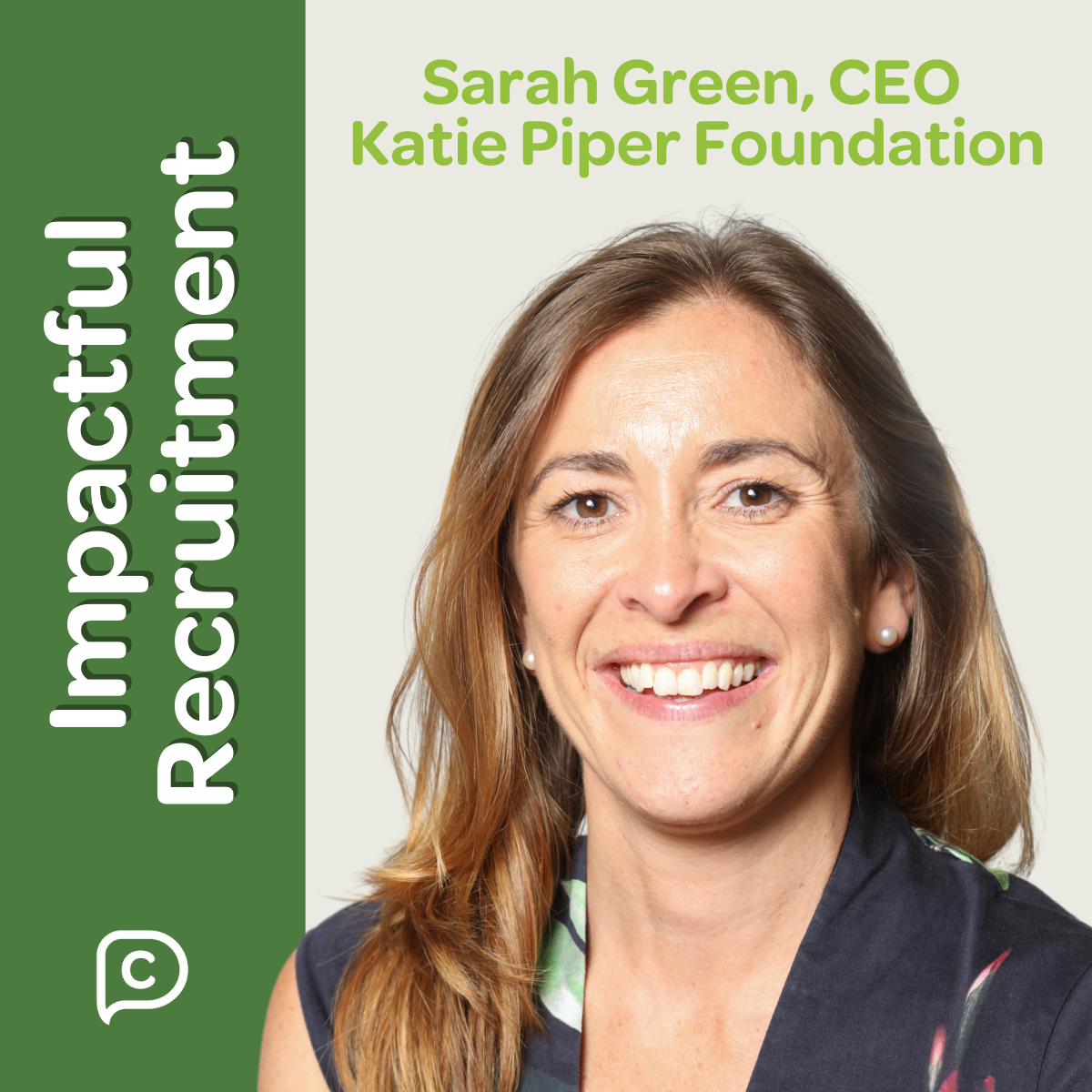By Nick Billingham & Sarah Green
We check in with Sarah Green, Chief Executive at the Katie Piper Foundation, two and a half years after we placed her to find out how she has shaped the role and organisation.
Tell us about your role at the Katie Piper Foundation and how you and Katie work together.
I have been the Chief Executive at The Katie Piper Foundation for the last two and a half years. We are a small charity that focuses on supporting survivors of burns and traumatic scarring. We were established 11 years ago after Katie, suffered significant burns as the result of an acid attack. After Katie’s acute care, she travelled to France to receive care from a specialist French government funded service there. Katie was determined to ensure that other survivors of burns were able to receive equivalent transformational care in the UK, without needing to go abroad. Katie continues to be at the forefront of the work we do as our Founder. She is also an active member of the Board of Trustees working alongside her fellow Trustees to ensure that we have clear structure and governance. Together Katie and I always ensure the charity is survivor focused and we provide clear and consistent messaging to enable other survivors to reach out for the support they need.
How are you managing the locations that your team work from? Are you planning to continue remote working, come back to the office or operate a hybrid model?
The team are based all over the UK with some members based in and around Merseyside where our residential rehabilitation service is based.
At the start of the pandemic we had to pause our residential service and set up a remote offering to ensure we could quickly support survivors and establish their immediate needs. This involved building programmes of individualised care delivered through digital means directly into their home setting.
Evolving the way we deliver our services has allowed all the team, including our physiotherapists, psychotherapist and other professionals to deliver survivor care from home.
As we start to re-open our residential service later this year we will be joining together the remote and residential services to created a ‘blended offering’ for survivors. This will require the services team to work in a hybrid model (both remote and from the residential centre) dependent on what survivors need.
The rest of the fundraising, communications and admin team including myself, will mainly work at home as we did before the pandemic, but with opportunities to come together as needed giving us chance to connect, which I believe is extremely important for any team.
What has been the biggest highlight since you started in the role?
I think there have been a number of highlights. The most significant for me was establishing the residential rehabilitation service in early 2019. This was a huge highlight as we had managed to finally deliver Katie’s aspiration of intensive residential rehabilitation for survivors in the UK. Since this point we have been able to see the fantastic outcomes for survivors and how the care we provide helps them to move forward with their lives.
What are you most proud of at the Katie Piper Foundation?
I continue to be extremely proud of the small but resilient team I have around me. All striving to deliver the best care and support for survivors. When we had to quickly pause on the residential rehabilitation service, we worked closely together to establish a remote service to be delivered digitally to survivors in their homes. Everyone did whatever was needed to provide an urgent continuity of care. The back drop to these changes has been a loss of income due to the pandemic, which has been met ‘head on’ by our fundraising team. They continue to stay close to our loyal supporters and trial new and innovative ways of generating income.
What has been your biggest challenge in the role and how have you overcome it?
Adapting services and navigating our way through a challenging income position as a result of the pandemic. Throughout we had to stay on track with the key elements of our strategy, whilst acknowledging that some plans needed adjusting to ensure we were poised to respond to survivor need.
What are your plans for the future?
We are working to create the resources and facilities needed to make our ‘blended’ services a reality.
Our close relationship with the NHS will continue to be developed, to ensure we are working in collaboration for survivor referrals. We will also look at how we can work more closely to seamlessly transition those in need from NHS acute care into our services.
I think the pandemic means the future is still uncertain but we have a clear vision and effective planning in place to help us navigate this landscape. Communication is key, making sure our staff, trustees, volunteers, survivors and funders understand the journey we need to take to deliver the best care and support we can.
___
Thank you for sharing your story for others to learn from, Sarah. Glad to have been a part of your career journey.
To talk to us about senior appointments, please contact Nick Billingham nickb@charitypeople.co.uk or Philippa Randle philippa@charitypeople.co.uk


